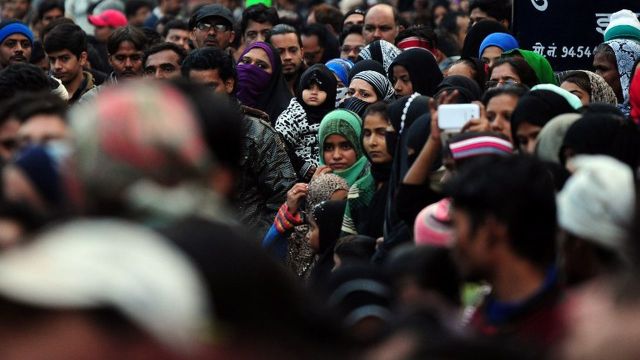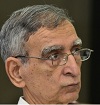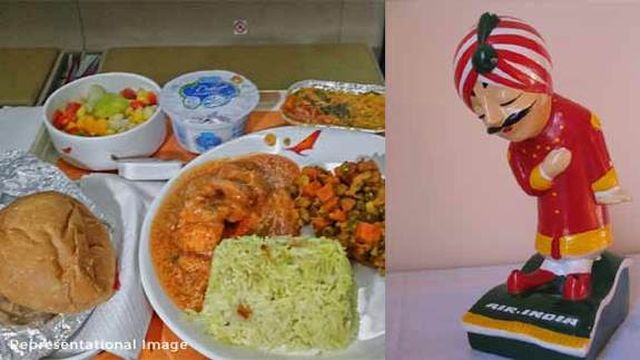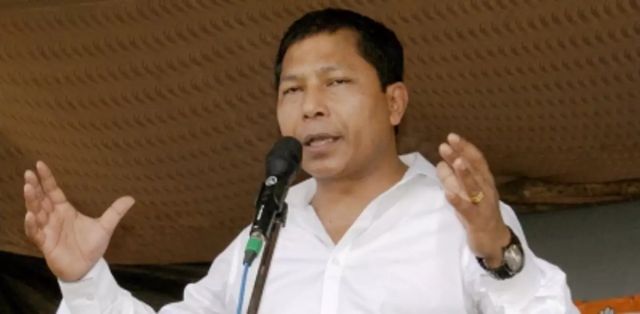
by admin | May 25, 2021 | Opinions

Ram Puniyani
By Ram Puniyani
A Year ago, RSS Chief Mohan Bhagwat had stated (October 10, 2019) that Indian Muslims are happiest in the World due to Hindus. Now he goes on to say that most content Muslims are only in India. Not content with that he went on to state that “if there is any example world over wherein a foreign religion that ruled over the people of a country still exists there”, it is here in India. And further “”Our Constitution did not say that only Hindus can stay here; hereafter only Hindus will be heard here; if you want to stay here, then you have to accept the superiority of Hindus. We created a space for them. This is the nature of our nation, and that inherent nature is called Hindu”. Wearing the hat of a historian he stated that many a Muslims fought for Rana Pratap against Akbar, exemplifying that people of all faiths stood together whenever there was an attack on India’s culture. He labeled Ram Temple is a symbol of national values and character.
Most of these formulations are a ploy to deflect the criticism which RSS, as the patriarch of Hindu Communalism is facing currently, at home and also internationally. The plight of Muslims has been deteriorating at rapid pace during last few decades. Adding on to the violence against them in the wake of Rath yatras for Ram Temple, the mob lynching’s in the name of cow-beef, the social intimidations in the name of love jihad, ghar Wapasi have peaked during last few years. The cumulative intimidation of Muslim community did find its expression in the most democratic Shaheen bagh movement. The violence that took place in the aftermath saw the heavy loss of Muslim lives and great damage to their properties and holy places. The image of communalism as tormentor of weaker sections of society is going up, so probably Mr. Bhagwat is quoting Indian Constitution, which most leaders from his Parivar decry, criticize and call it as being unsuitable for India as it is based on foreign values. On the contrary Shaheen bagh movement showed the peak respect for the same when ‘Preamble of Indian Constitution’ formed its core slogan and ideology.
Undoubtedly, Indian Constitution wants a plural democratic India while RSS parivar wants a Hindu nation. For Indian Constitution religions are not foreign or native, they are universal and we have a full freedom to practice, preach and propagate our religion, we also have a freedom not to adhere to any religion.
The RSS Sarsanghchalak probably does not know that nationalism and religion were separate in the scheme of freedom movement of India where people from different religions and atheists participated with equal zest in fighting against the British rule. He may be unaware that in South East Asian countries the major religion is Buddhism, which originated in this land but is the major religion in those countries.
The communal view of History has been the mainstay of his organization, rather his Parivar’s politics. When he says that even Muslims participated in battle against Akbar, to save the Indian culture, he is taking the distortion of History to further level. In what way did Rana Pratap represent Indian culture? He was a King of Mewar. In what way the battle between Akbar and Rana Pratap was for Indian culture. Akbar, for that matter most of the Muslim kings, who ruled here, became the part of this land. Akbar in particular was for multi-faith society, that’s why he conceptualized Sulh-E-Kul (Harmony among religions). And as Muslim Hakim Khan Sur was part of Rana Pratap’s army (saving Indian culture!), so was Raja Mansingh leading the forces of Akbar! Quiet a garbled up exercise to project Rana Pratap as symbolizing Indian culture, forgetting Raja Mansing was leading forces from opposite side.
So far RSS history has been presenting Rana Pratap and Shivaji as heroes of Hindu nationalism, now probably they have learnt that both these warriors had Muslims in their army and similarly their rival Muslim Kings had Hindus also on their side. These battles have nothing to do as being for and against Indian culture. As such Indian culture flourished during this period leading Jawaharlal Nehru to call this as ‘Ganga Jamani Tehjeeb’ (Syncretism, pluralism at peak). The peak of this was Bhakti and Sufi traditions, which focused on humane aspects of life.
As far as Ram Temple being the symbol of national values and culture, we should recall Bhimrao Ambedkar’s ‘Riddles of Rama and Krishna’, where Ambedkar and later Periyar criticize the Lord for killing a Shudra Shambuk, when he was doing penance, killed Bali from behind and banished his pregnant wife Sita on mere suspicion. Symbol of Indian nationalism is freedom movement and Indian Constitution.
Indian Constitution gives equal citizenship rights to people of all religions, ethnicities, regions and languages. The problem is that communalism regards this as a Hindu nation and so Muslims and Christians are regarded as foreigners. Accordingly earlier Sarsanghchalak M.S. Golwalkar in his book, ‘Bunch of thoughts’; calls them internal threat to the nation.
To call that Indian Muslims are happiest in the World due to Hindus or they are most content in the World, must a joke. In the light of the rising violence against them, the rising ghettoisation of the community and their declining political representation tells another tale. To cap it; now a section of media, which is part of the communal project, is coining words like Corona Jihad, Corona bomb and the last in the series is from Sudarshan Channel, which sees four odd percent successful Muslim candidates as Jamia Jihadis and others with them as a part of planned jihad to take over civil services!
Such statements like Indian Muslims are most content or happiest is like rubbing salt on the wounds of a besieged community, which is trying its best to live the values of Indian Constitution as witnessed during Shaheen bagh movement.

by admin | May 25, 2021 | Opinions
 By Ashok Easwaran,
By Ashok Easwaran,
At its best, speeches at the recently concluded World Hindu Congress echoed the soaring spiritual ideals evoked by Swami Vivekananda in Chicago 125 years ago.
Even Mohan Bhagwat, Sarsangchanalak of the Rashtriya Swayamsevak Sangh (RSS), focused essentially on the need for unity and patience among Hindus while fighting obstacles, of which, he said, there would be many. The burden of excavating implied accusations in Bhagwat’s speech fell to his critics.
At the plenary session, the moderator requested speakers to address issues of conflict without naming the speakers or their organisations in the interest of harmony. Other speakers sought to unite the followers of all the great religions that took birth in India — Hinduism, Sikhism, Buddhism and Jainism.
Some of the speakers from Bhagwat to Swami Swaroopananda of the Chinmaya Mission, framed the issues before Hinduism in a moral paradigm. Ashwin Adhin, the Vice President of the Republic of Suriname, began his speech in chaste Hindi, later quoting cognitive scientist George Lakoff: “Facts matter immensely. But to be meaningful they have to be framed in terms of their moral importance.”
The dissonances, between the spiritual and the mundane, were to emerge later on the fringes of the seminars which were part of the Congress. Many of the delegates appropriated to themselves the mantle of a culture besieged by proselytising faiths. There were speakers who urged Hindus to have more children to combat their ‘dwindling population’. Posters warned Hindus of the dangers from ‘love jihad’ (Muslim men ‘enticing’ Hindu women).
In one of the sessions on the media, filmmaker Amit Khanna noted that religion had always played a prominent part in Indian cinema, starting with the earliest mythologicals. “Raja Harishchandra”, the first silent film, he said, was made by Dadasaheb Phalke in 1913. He sought to reassure the audience on the future of Hinduism. “Over 80 percent of Indians are Hindus,” he said adding: “Hinduism has survived many upheavals for thousands of years. Hinduism has never been endangered.”
Other speakers, lacking spiritual and academic pedigrees, drew on an arsenal of simulated anguish and simmering indignation.
The nuances of history pass lightly over the ferociously devout and it took little effort to pander to an aggravated sense of historical aggrievement.
At one of the debates, the mere mention of Jawaharlal Nehru, India’s first Prime Minister, elicited sniggers and boos. The speaker hinted at ‘Nehruvian socialism’ which had made the Indian economy a non-starter. He concluded with a coup de grace, to a standing ovation: “Nehru did not like anything Indian.”
The poet Rabindranath Tagore, who composed the Indian national anthem, had spoken of his vision of a country where the “clear stream of reason had not lost its way”. At some of the discussions, even the most indulgent observer would have been hard put to discern the stream of reason.
The image of a once great civilisation suppressed by a century of British rule and repeated plunder by invaders captured the imagination of many in the audience. Hanging above it all, like a disembodied spirit, was the so-called malfeasance of Nehru, the leader who had won the trust of Hindus only to betray them in the vilest manner.
These tortured souls would have been well advised to adopt a more holistic approach to Hinduism, and history, looking no further than Swami Vivekananda, who once said: “The singleness of attachment (Nishtha) to a loved object, without which no genuine love can grow, is very often also the cause of denunciation of everything else.”
Historians have informed us that Nehru preferred his father’s intellect over his mother’s tradition but he was never contemptuous of religion. While he undoubtedly felt that organised religion had its flaws, he opined that it supplied a deeply felt inner need of human nature while also giving a set of values to human life.
In private conversations some delegates spoke of how their America-born children had helped persuade them to drop their pathological aversion to gays and lesbians. Despite their acute wariness of perceived cultural subjugation, the irony was obviously lost on them that Article 377 of the Indian Penal Code,(which criminalises gay sex) recently overturned by the Indian Supreme Court, is a hangover from the Victorian British era-embodied in the Buggery Act of 1533.
In the face of the upcoming elections in the US, Congressman Raja Krishnamoorthi’s decision to speak at the conference was a political risk. With a newly energised political Left, even the perception of being linked with “fascist” or sectarian forces could be political suicide in the critical November elections. Despite vociferous appeals to disassociate himself from the Congress, Krishnamoorthi chose to attend.
“I decided I had to be here because I wanted to reaffirm the highest and only form of Hinduism that I have ever known and been taught — namely one that welcomes all people, embraces all people, and accepts all people, regardless of their faith. I reject all other forms. In short, I reaffirm the teaching of Swami Vivekananda,” Krishnamoorthi said.
Given the almost pervasive abhorrence of anything remotely Nehruvian among a section of the delegates, it was a revelation to hear the opinion of Dattatrey Hosable, the joint general secretary and second-in-command in the RSS hierarchy. Speaking on the promise of a newly-resurgent India, Hosable said in an interview to Mayank Chhaya, a local journalist-author-filmmaker: “A moment comes, which comes but rarely in history, when we step out from the old to the new — when an age ends, and when the soul of a nation, long suppressed, finds utterance.”
The quote is from Nehru’s famous Tryst with Destiny speech delivered to the Indian Constituent Assembly on the midnight of August 14, 1947 — proof, if any is needed, that the force of Nehru’s ideas can transcend one’s disdain of him.
(Ashok Easwaran is an American journalist of Indian origin. The views expressed are personal. He can be contacted at ashok3185@yahoo.com)
—IANS

by admin | May 25, 2021 | Halal Food, Halal Industries, Opinions
 By Saeed Naqvi,
By Saeed Naqvi,
On an Air India flight from London, the hostess walked down the aisle taking orders for dinner. She leaned over and asked almost conspiratorially.
“May I serve you your Muslim meal now?”
“Muslim meal?” I asked with a start, casting a glance at my equally puzzled wife.
The hostess was embarrassed. A new detail had been added to her hospitality protocol and she was not accustomed to it.
The damage, it turned out, had been done in my office. Responding to a column on dietary preferences, the person responsible for air reservation had hunted high and low for a simple non-vegetarian meal. No such meal was listed. Then he spotted “Muslim meal”. The explanatory paragraph clarified that “all non-vegetarian meals are suitable for Muslims and are prepared in accordance with halal method”.
The journalist in me took over.
“Fair enough, you have identified us as Muslim, but surely there are others on the flight who are non-vegetarians but not Muslim?”
Of course, there are non-vegetarians on Air India but they would not accept the odium of Muslim ancestry simply to indulge their dietary preference. They want to eat meat but as thoroughbred Hindus.
Two consequences follow. Obstacles in the way of non-vegetarianism depresses the demand for non-vegetarian food. By the same token, Hindu passengers feel they are being short changed. This was reverse discrimination. They see themselves being pushed to the lower end of the culinary caste system. The demand for non-veg, therefore, gains in decibel levels: we want non-veg, that’s for sure, but one which is neither “Muslim” nor “halal”.
A three-way dietary division evolves: (1) Hindus not fussy about labels: “Muslim” or “halal” accept whatever is available. (2) Those for whom realization has been abrupt that what they have been eating for generations was “Muslim” – halal. Ignorance is bliss but not now that enlightenment has come riding on an Air India menu. (3) Simple vegetarians whose tribe, by the way, is growing by leaps and bounds in India as elsewhere face no problem whatsoever.
For the authors of the “Muslim meal” idea, the first category is the most disruptive because it has skewed the process of data collection on how potentially vegetarian or otherwise, India is. This is the key research required for advancing the aspect of Hindutva concerned with promoting non-Muslim dietary practices. If this category can stand its ground despite the disincentive of being called Muslims and halal eaters, this non-veg constituency might just stabilize, even grow. God forbid, it may come in the way of full spectrum Hindutva, vegetarianism et al.
The second category is demanding a non vegetarian meal which is unsullied by Muslim-halal connotations. This is a new demand. This clientele does not quite know what it wants; it knows what it does not want in the non-veg arena. It has clearly asked the catering department of Air India a question which is not easy to answer: what non-veg fare can you serve which is not Muslim-halal?”
Here the discussion acquires exactly the potential for which it was initiated – to polarize and, as a trial run, divide the aircraft cabin between vegetarians and non-vegetarians who, the perpetrators hope, would not like to be grouped as halal-eating Muslims. The cabin is, in this instance, a microcosm of the meat-mukt India of Hindutva’s dreams.
A quick answer to halal is jhatka, the method of severing the animal’s head with one stroke, favoured by Sikhs. The jhatka-halal debate is custom made for an Arnab Goswami show. Have a devout Sikh, a muscular Mullah and a Bajrang Bali Bhakt peer out of three windows. Extract all the gory details on jhatka and halal from the spokesmen of two distinct schools of slaughter. A possible walkout by the abstemious Bajrangi may well spur Hindu consolidation on an unprecedented scale.
On a more practical note, the “shosha” (mischief) started by AI can be put to some constructive use. A new approach to cuisine may involve drastic change: a non-veg cuisine developed over centuries as a near art form may have to be jettisoned from official banquets and national carriers. The problem will, of-course, arise when lynch mobs on the lookout for a cause, enter restaurants advertising non-veg fare. Individual non-vegetarians may also incur the wrath of the lynch mobs. In fact a malicious rumour has been floated that the monkeys that have been let loose on Delhi’s citizenry are an animal loving Minister’s project directed against non-veg addicts. The monkeys, says the rumour, are being trained on the Ridge to block entry of meat into non-veg kitchens. The producer of super hit Bajrangi Bhaijan has threatened to go on hunger strike if the avatars of Bajrang Bali are involved in operations which have anything, negative or positive, to do with meat.
The hypocrisy around the cuisine at official banquets at Hyderabad House or even the Rashtrapti Bhawan until the other day has always bordered on the pathetic. There was an insistence on tasteless fare called Mughlai food at a time when streets named after the dynasty were under assault. The banquets begin with a bogus “toast” of some flat cola. This then is a good time to take a hard look at the rampaging Vegan movement globally. Climate change, animal care, fear of artificially inflated livestock for the table is turning the world to organic, vegetarian food. Jeremy Corbyn, who may well be Britain’s Prime Minister one day, is a vegetarian.
The core idea of the Nouvelle cuisine Air India should be searching for (and not just creating communal trouble) was available in the “prasada” or “offering” cooked each day in gigantic vessels at the Dargah in Ajmer. The daily fare followed one golden principle: it should be acceptable to widest possible range of pilgrims. The “prasada” was free even of onion, garlic, mushrooms, potatoes or any vegetable which grows underground. This principle is followed in all major Hindu and Sikh places of worship. Somewhere here is the answer to Air India’s quest. To monitor strict vegetarianism in flight, a free ticket may be considered for a representative of the lynch mob on every Air India flight.
(A senior commentator on diplomatic and political affairs, Saeed Naqvi can be reached on saeednaqvi@hotmail.com. The views expressed are personal.)
—IANS

by admin | May 25, 2021 | News, Politics

Giriraj Singh
Patna : Union Minister Giriraj Singh on Friday said as part of a sinister political design, attempts are being made to defame Hindus through the Kathua rape-murder case in Jammu and Kashmir.
Speaking at a function in Bihar’s Nawada, his parliamentary constituency, Singh said: “A conspiracy has been hatched to defame Hindus using the Kathua case. Some people with vested political interests are conspiring to divide the country.”
Blaming “pseudo secularism” for the conspiracy, the Union Minister of State for Micro, Small and Medium Enterprises said: “Some people are actively defaming Hindus in the name of secularism.”
Singh said earlier an attempt was made to defame Swami Aseemanand by linking him with Hindu terror or “Bhagwa Aatankwad”. “Now a fresh attempt is being made to defame Hindus through the Kathua case.”
He condemned the Kathua incident and demanded the arrest of the accused.
“But instead of arresting the real culprits, Hindus are being defamed,” he alleged and appealed to the youth to be alert to counter the forces opposed to the country.
Singh has constantly courted controversy for his statements. During the 2014 Lok Sabha election, he wanted all “those who want to oppose Narendra Modi” to “go to Pakistan”.
—IANS

by admin | May 25, 2021 | News, Politics

Mukul Sangma
Shillong : Slamming RSS chief Mohan Bhagwat’s remark that “anybody living in India is a Hindu”, Meghalaya Chief Minister Mukul Sangma on Tuesday said “India is a secular, democratic country and secularism is part of our constitution”.
“Their agenda is only to divide the Indian people on lines of religion and create communal tension. His statement (made in Tripura) is loud and clear that the motive is to that. We really need to ponder,” Sangma told IANS.
“It is totally unacceptable to say that anybody living in India is a Hindu. The whole world knows that India is a secular, democratic country and secularism is part of our constitution,” the veteran Congress leader said.
Sangma said that the nation must not allow such divisive forces to spread communalism as it is dangerous and pose a threat to India.
“Our secular ideals are under threat because of the ideology of Rashtriya Swayamsevak Sangh (RSS) and Bharatiya Janata Party (BJP). We cannot allow these divisive forces to further penetrate and it is dangerous for any nation to be dictated by such forces,” he said.
Charging the BJP-led National Democratic Alliance (NDA) government at the Centre of imposing the RSS agenda, Sangma said: “They (Modi government) have been driven by the RSS agenda and this government is implementing them.”
“Ever since they came to power, they have been implementing RSS ideology. It is time for people to be blunt and frank and express their concern,” the Congress leader said.
Sangma also said the Congress is firm and ready to defend the secular fabric of India.
“We should not lose focus. One after another, the hidden agenda of the BJP has come out. We should be able to properly articulate… and be ready to defend the future of this nation,” Sangma said.
—IANS






